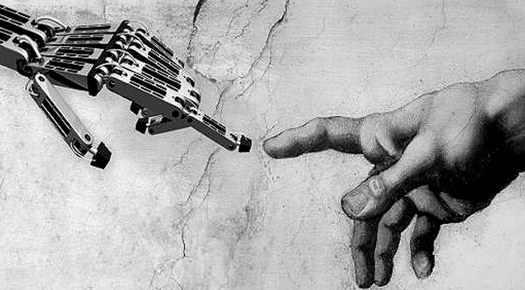
According to a new study published in the Journal of Media and Religion, those who participated in a survey on technology and religion cared little about whether they read the scripture on their phone or inside the well-worn pages of their family Bible, as they considered the words to be sacred either way. The researchers conducting the survey found that Baptists, even those above the age of 60, were willing to embrace new technology for religious purposes, especially because they considered it convenient.
“The Holy Words — it matters not how I got them, it's 'have I retained them?'” said one male respondent in his 60s while another female respondent from the same age group said, “If you go somewhere on a trip, you can just take the one little thing, which is about the size of a small book, and then you’ve got access to many books on that one thing.”
The study found that the convenience of new technology was not pertaining to travel alone since many of the 234 respondents also cited convenience with regards to teaching and learning purposes. As a matter of fact, the study revealed how Bible Study and Sunday School teachers were more comfortable using technology than not.
“It’s a lot easier on the Internet to look up obscure things — things that are hard to track down otherwise,” one teacher said. “I’ll spend time looking things up.”
Another study conducted by Barna Group this year found that 87 percent of pastors believe it is theologically permissible for a church to offer religious experiences or faith assistance to believers through the internet and 86 percent of pastors believe that individuals within their community would find such use of technology permissible as well.
The influence of technology on religion has been widespread. According to a study carried out by Barna Group in 2013, 70 percent of practicing Christian millennials were found making use of a screen for religious purposes. Additionally, technology was found to have no age limit, as revealed by Pew Research Center in a study of theirs in 2014, according to which, 52 percent adults between 30 and 49 years of age used tablets, 40 percent used e-readers and those between 50 and 64 years of age scored 37 percent and 32 percent respectively.
However, while most believers continue to perceive technology as a useful tool for religion, a study conducted by MIT in 2014 found the internet to be one of the top reasons for a drop in religiosity among Americans. According to researchers affiliated with that study, there was a strong correlation between growing internet users and the growing number of individuals unaffiliated with religion.
The consequences of technology were also observed by some respondents of the latest study, who compared the new phenomenon with a double-edged sword that tends to distract believers while offering convenience to them at the same time.
“Relationships are incredibly important in religion,” one older male commented. “Where’s that coming from if all you’re doing is looking at a screen? That haunts me.”
Roxanne Stone, vice president at Barna Group, said of pastors’ use of the internet, “Much of a pastor’s role is about presence: presence in a community of believers, presence in the taking of communion, presence in the service of others, presence in communal prayer and worship.… The internet can offer an important and accessible supplement to these physical activities, but pastors are reluctant to say it can fully replace them or duplicate them.”
Photo Credits: GeekSnack
